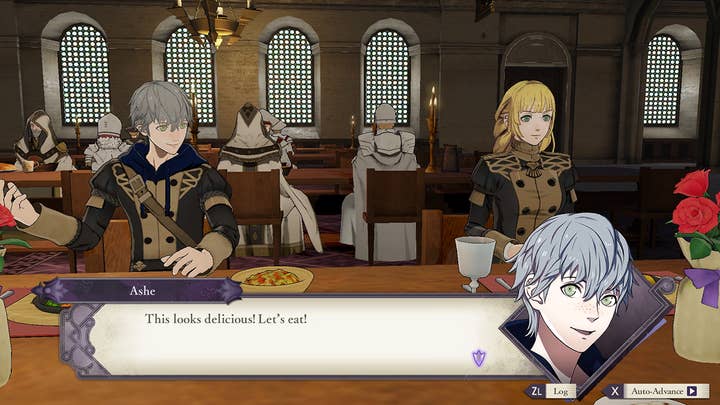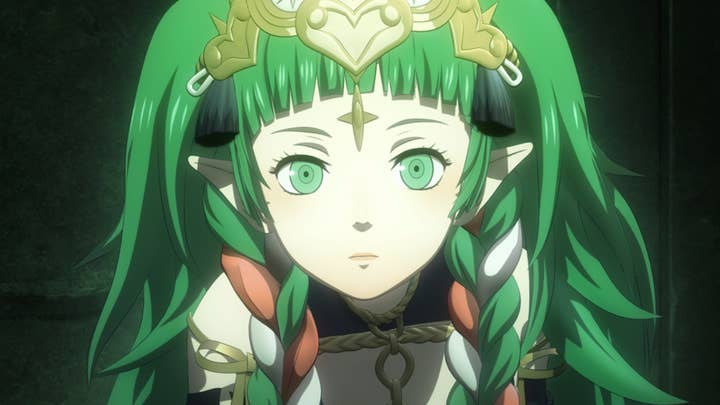Fire Emblem Three Houses: Critical Consensus
Critics heap near unanimous praise for the strategy RPG's return to console, and its efforts to wrangle both old and new fans
Fire Emblem has been a handheld-only series for more than a decade. But like many of its 3DS and DS-focused compatriot franchises (Pokémon, Animal Crossing, Luigi's Mansion, the list goes on), the gradual demise of Nintendo's dedicated handheld business and the transition to the Switch have mandated that Fire Emblem step up and re-embrace console life.
The jump inevitably comes with raised expectations, not least because of the increased price tag. And Fire Emblem itself is at a crossroads, with the recent remake Fire Emblem Echoes: Shadows of Valentia embracing the series' combat-focused roots, and modern titles like Fates leaning into its more recent tendencies toward a dating sim. There's a lot riding on Fire Emblem: Three Houses to marry the two ideas for a new and improved console.
"Perhaps with the one exception of graphical performance, it seems that no area of this strategy epic was given the short end of the stick in development"
Mitch Vogel
Fortunately, the game's day-one Metacritic score of 88 and nigh universal critical praise is a promising sign that Intelligent Systems has managed to strike a balance that most Fire Emblem fans will enjoy. Mitch Vogel at Nintendo Life makes the point as follows in his 9/10 review:
"Fire Emblem: Three Houses is an absolutely wonderful strategy RPG experience. This is Fire Emblem dialled up to 11, perfectly balanced between the lessons learned from past titles while also experimenting with bold new ideas the series has never attempted before. Perhaps with the one exception of graphical performance, it seems that no area of this strategy epic was given the short end of the stick in development; it's an impressively smooth experience that flows seamlessly from one element to the next, all in service of the overarching, thoughtful gameplay that's made the series such a hit over the years.
"We'll have to see how Three Houses factors into the ongoing debate of which game is the best in the series, but it's pretty safe to say that this release deserves a spot in that conversation."
Three Houses is effectively split into two parts: its sequences at the Academy where you, a teacher, train your pupils, build friendships and relationships with them, and effectively plan out your army you will use in the other part of the game. Though relationships and romances have been part of Fire Emblem in the past, some critics who missed their depth in games like Fire Emblem: Fates felt they were too shallow in Three Houses. And Dom Pepplatt from DailyStar noted that the game's same-sex romance options especially were lacking in his 6/10 review:
"Romance options are limited if you're playing as a straight character and straight-up disrespectful if you're playing with aims of being a gay protagonist"
Dom Pepplatt
"Romance options -- which this game sells itself on to a lot of its audience -- are limited if you're playing as a straight character and straight-up disrespectful if you're playing with aims of being a gay protagonist. We don't want to spoil the narrative here, but the MLM options are either insensitive or insulting, and the WLW options (it could be argued) are more aimed at titillation than they are representation."
Polygon's Russ Frushtick also wasn't in love with how the romances played out, but enjoyed every other aspect of the Academy's management mechanics:
"Despite all this, I find myself fully obsessing over how I spend my time around the Academy, as it all has direct gameplay implications on the growth of my units. It's extremely easy to skip these school sequences, letting the computer decide who gets trained and how, but the ability to micromanage their development is too enticing to pass up. I want to be the master of my army, rather than have an arbitrary algorithm decide which skills my friends excel in. There are times I spend more than an hour between missions, shifting gear around, training up skills, and reforging weapons for my crew."

The Fire Emblem series has always been supported by the two pillars of tactical gameplay and character-driven storylines. And while reviewers had differing opinions about the various specifics and intricacies of the game's combat, the common consensus is that the battle portions of the game click perfectly into place against Three Houses' story and its school-centered interludes, with the latter adding depth and complexity to the former particularly in the game's first half.
"Excuse the well-worn cliché, but Fire Emblem: Three Houses really is a game of two halves," said Eurogamer's Martin Robinson. "On the one hand, it's almost a dating sim -- indeed, it might be one of the most lavish examples yet, fully voiced in either Japanese or English depending on your tastes, rich with romance options and side-stories to explore as you sprint around the halls of the Garegg Mach Monastery keeping tabs on the students under your tuition.
"It's a tightly engineered, staggeringly deep turn-based tactical game, serving up a smart evolution of the formula that Intelligent Systems has been developing for nearly 30 years now"
Martin Robinson
"On the other, though, it's a tightly engineered, staggeringly deep turn-based tactical game, serving up a smart evolution of the formula that Intelligent Systems has been developing for nearly 30 years now."
Critics did hone in on a number of meaningful distinctions in the game's combat from that of its predecessors, with special attention being paid to the removal (or, rather, revamping) of the game's weapons triangle and the options surrounding perma-death. There are also a number of new or updated combat mechanics taking the place of the old weapon triangle, a complexity that Austin Walker appreciated in his review for Waypoint Vice:
"All of [these new mechanics] would make the old model of combat too unpredictable. But because you can now see who the enemy is targeting and how much damage they'll likely do (barring a critical hit), the result is a combat model that feels like an improvisational puzzle box. By the mid game, as you unlock more spells, abilities, special weapons, and battalions (bodyguards with special abilities and stat bonuses who you can employ and attach to your units), you have a toybox of creative solutions to play with. It isn't quite Into the Breach, but it does present a vision of Fire Emblem that doesn't rely heavily on the fear of losing characters. (And for what's it worth, most of the missions were still tense, challenging encounters that rewarded smart play.)"
In her 4.5/5 review at USGamer, Kat Bailey effectively summed up the most common piece of praise critics had for Fire Emblem: Three Houses and its efforts to collect all of its past audiences on a new console:
"While not exactly stagnant, the classic formula that made it a pioneer in the turn-based tactics genre did feel a little small-scale for a full-priced Switch game," she said. "That made it incumbent upon developer Intelligent Systems to find a way to expand the formula, and it has responded with a big, beautiful, and fully-explorable academy to go with a host of other changes. I don't wish to disparage the 3DS, which is a fine system, but if Fire Emblem: Three Houses' goal is to feel like a game that belongs on a TV, then mission accomplished."
"If you dig it, there's a lot of game to be found here, much of it excellent. Over the past decade or so, it's felt as if Fire Emblem has been in transition, eager to embrace a new audience without entirely alienating its original fans. The endpoint of that process is a game that manages to transcend its tactical roots without entirely abandoning them, establishing a framework in which it can credibly compete on consoles. Three Houses is the game that Fire Emblem: Fates wanted to be."

